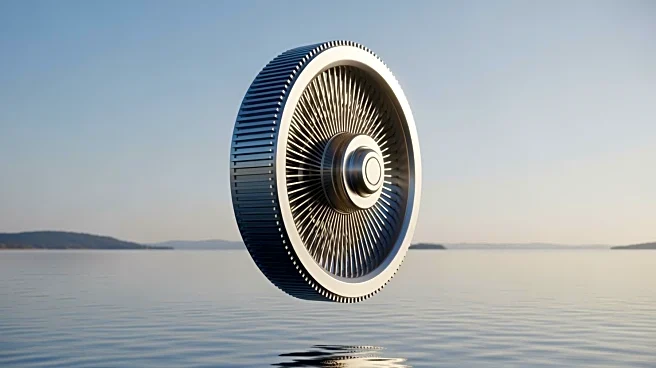What's Happening?
Recent advancements in flywheel technology are being considered for short-distance ferry propulsion. High-strength materials have increased the hoop strength of flywheels, allowing them to operate at higher
rotational speeds. Companies like Beacon Power and Shenzen Energy Group have developed flywheels capable of delivering substantial power, with Beacon Power's flywheels offering up to 50kW for 30 minutes. These flywheels provide a competitive alternative to lithium-ion batteries, offering longer life expectancy and cost-effectiveness for short-haul ferry operations.
Why It's Important?
The adoption of flywheel technology in maritime propulsion could significantly reduce reliance on traditional battery systems, offering a more sustainable and efficient energy solution. This shift could lead to lower operational costs and increased environmental benefits, aligning with global efforts to reduce carbon emissions in the transportation sector. The technology's potential for high-frequency recharging and long service life makes it particularly suitable for ferries operating on short routes.
What's Next?
Further research and development are expected to optimize flywheel technology for maritime use, potentially leading to pilot projects and commercial adoption. Stakeholders in the maritime industry may explore partnerships with technology providers to integrate flywheel systems into existing ferry fleets, enhancing energy efficiency and sustainability.
Beyond the Headlines
The implementation of flywheel technology in ferries could influence broader transportation policies, encouraging investment in renewable energy solutions and infrastructure. It also raises considerations about the integration of new technologies into traditional maritime practices and the potential impact on industry regulations.










